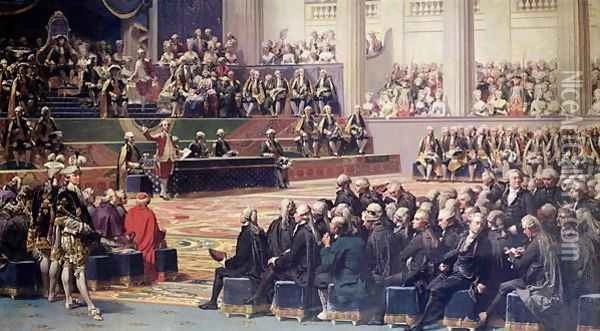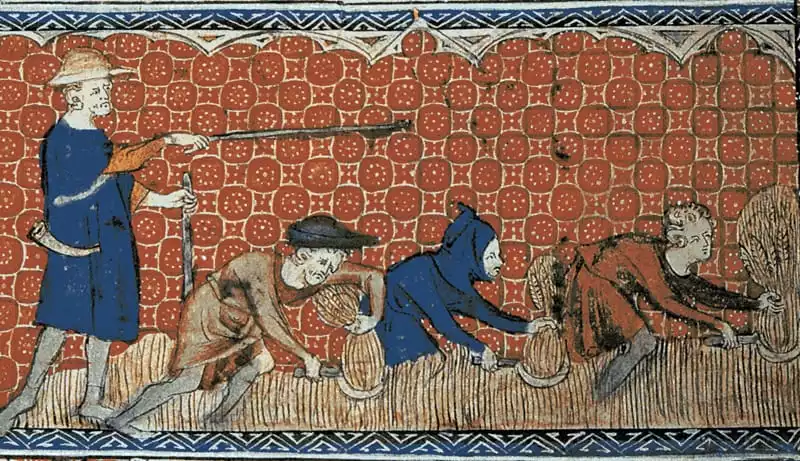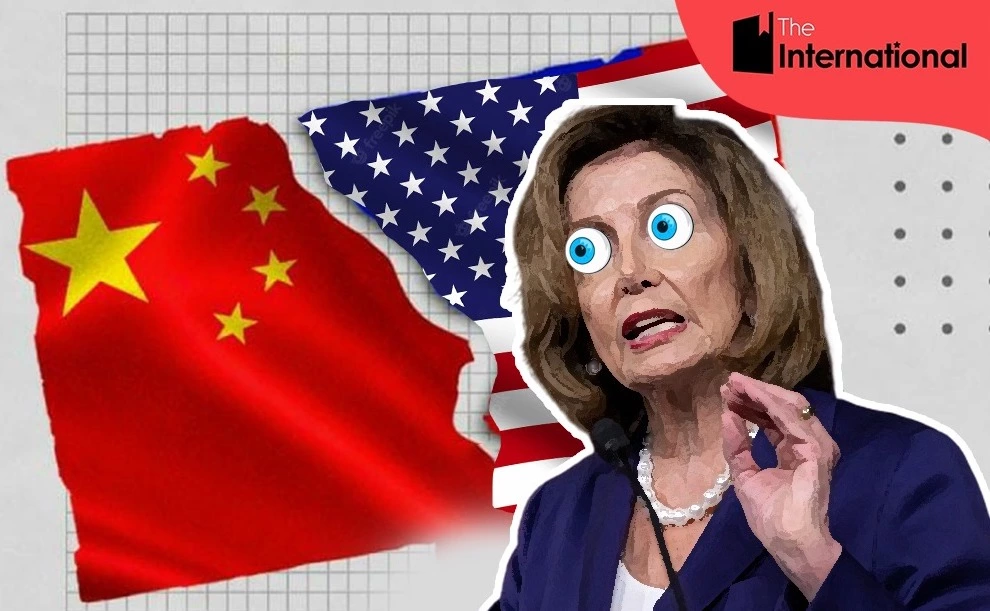When the French Revolution abolished the ‘Estates General’, and appeared to usher in the Enlightenment virtues of egalitarianism, the accepted liberal historical view was that the age of absolutist and clerical elites had been confined to the dustbin of history. Whilst the absolutism of the past was replaced by varieties of Liberalism and representative democracy, the overriding problem of ‘democratic legitimacy’ has never been solved. The first contention I put forward is that the modern liberal democratic diaspora has evolved in a cyclical fashion through varying forms of ‘elitism’. The second contention is that the present liberal elitism, represented by the ‘knowledge’ (statist) class is more volatile, more exploitative than before. This is already visible in the dialectic it has produced-where liberal democracy is ultimately consumed by its opposite-populism. Like Kronos, liberal elites reform, and devour themselves, whatever the ostensibly political packaging; whether the transition is from Tsarism to the nomenklatura of the soviets, or from anarchic liberalism to statist bureaucracies. Therefore the ‘Estates General’ implies a reshuffling of the elites akin to Robert Michel’s ‘Iron Law of Oligarchy’. Liberalism has changed due to the economic circumstances: it has moved from an anarchic Adam Smith core to one of substantial collective statism. This, in turn reflects the technological turn from industrialisation to technological infrastructure. The new ‘value’ based liberalism replaces the Keynesian industrial model. In this model, business and individuals are taxed at an ever- increasing rate in order to finance, not hospitals and schools, but a bloated state sector of loyal cadres. At the pinnacle of the sector are the elites. ‘All societies’ wrote Burnham ‘including societies called democratic, are ruled by a minority…the primary object of every elite, or ruling class, is to maintain its own power and privilege’.
They are the elites of the new class or nomenklatura which resemble the Czech grocer in Havel’s ‘Power of the Powerless’ who places a sign in his window: ‘Workers of the world unite’.Havel asks if this sign shows the grocer’s enthusiasm for socialist principles or even his huge desire to show people his faith in his beliefs. No, answers Havel; what it shows is nothing about the content of the sign, but what this implies about the shopkeeper or his loyalty. The shopkeeper is really not interested in the worldwide socialist movement- but he is acting out his ‘loyalty’ to the correct ideology. Now in the new phase of administrative Liberalism, the elites diffuse their loyalty through the bloated public sector of cadres; the economic language of class displaced by the appeal of ‘progressivism’, of liberal mantras and deference to minority issues. The result of the liberal hegemony, however, has been a resurgence of ‘populism’, a largely working- class phenomena spreading like a spectre through populations increasingly deracinated and valueless.
The neo-liberal elite assault on working class influence was a reaction to the power of labour which came out of the New Deal period in the US and the rise of labour and unions in Britain after World War 2. In this, social income was eclipsing the return on capital. The neo-liberal response was increasing free trade, open border policies such as the EU and the attack on unionism. This ‘supply side’ tactic was engineered to free up alienated labour, remove labour legislation and introduce ‘flexible’ labour markets. Therefore, the argument that inequality was anything but ideological was a chimera as the return on capital, historically, has widened against social income
( r>g). The role of elites, through media domination, is to present capital as a neutral Adam Smith ‘invisible hand of the market’ phenomena. However, the nature of ‘elitism’ is not only seen in an urban class dynamic. The nature of the elite knowledge class is also peripheral, as outlined by Christophe Guilluy in France who shows the divergence of elites from ordinary working/agricultural concerns in the countryside. He also applied this analogy to the rise of Trump as a ‘populist’ response. The nature of ‘populism’, however, although presented as bigoted by the media and the elites, is a by-product of the breakdown of substantial working- class interests. The ‘entente-cordiale’ which occupied the post war consensus between labour and capital has been discarded by the neoliberals. In all realms, including social and cultural, judicial, media, government, corporate – the working class have been usurped and excluded. The ’populist’ response is a nascent response to this sense of homesickness and uprooting, to the overriding nausea of liberal ‘negative freedom’. The political parties of liberal democracy are consumed by the elites; whether that be the Democrats in the US or the Labour Party in the UK. Their emphasis on representative democracy fails to solve the problem of ‘democratic legitimacy’ as working- class interests are edited and deleted in the realms of labour and community groups. The elitist diaspora is floating in an international managerial, corporate, borderless utopia. The working class are rooted, economically and spiritually, to the increasing wastelands of modernity.

The globalisation of the 1990s seemed to herald in a new world order of international cooperation, free trade and cheap imports for the west. This positive spin, however, hid huge structural changes brought in by the neo-liberal elites. The UK, once the economic industrial powerhouse of the industrial revolution, now stands as one of the poorest nations in Europe. From 2005 to 2018 wages in Germany had risen by 40 percent. In France 39.8 percent. In the UK the figure is 9 per cent. This is not a result of Brexit, although that has had a detrimental recent impact. The neo-liberal switch to ‘deindustrialisation’ of the elite class under Margaret Thatcher had factored in the consequences of placing London at the apex of the financial world. This meant the abolition of industries, mass unemployment and the ‘managed decline’ of British industrial cities. The win win for the elites meant the weakening of labour and the outsourcing of production to China. It meant a return on investment for shareholders and a stagnation in wages for workers. Yet the financial crisis of 2008 exposed the shallowness of the neo-liberal project, the instability of the house of cards. With an imploding banking sector, the worst productivity rates in Europe, and then Brexit, the working class had entered the realms of a dystopian novel. The left talk about degrowth and the environment. The US faces similar structural problems and, again, the left elites speak with outrage against economic growth. The West seems to have forgotten the ‘telos’ of what made them successful.

The managerial elites, however, have not been defeated by the globalist, neo-liberal earthquake. They have merely placed a new sign in the window and moved the mannequins around. A neo-liberal elite, always Janus- faced, has now used the public sector civil servant hegemonies to elicit funding for a wide platform of liberal projects, NGOs and state sector consultancy. It is another win-win on the elite merry go round as they have discovered an even easier way of extracting funds- from the state. A rise in state sector funding has a large negative effect on investment and productivity. Research has shown how rent seeking, rather than profit seeking, has a negative impact on economies and economic growth. Monies from taxation are siphoned off to rent seeking consultancies and civil servants, thereby diverting government expenditure from productivity, industry and investment in technologies etc. Max Weber had predicted this: as well as the bureaucrats replacing the revolutionaries, the equality funding is whittled away on bureaucracies. At the same time real wages for workers has fallen. In the midst of the structural crisis along came Covid and the Ukrainian war and all the knock- on economic consequences of expensive energy. Therefore a ‘post-modern populism’ entered the stage; a pluralist populism which reflects the insecurities of working- class communities.
The above analysis places the spring of populism at the mountain of capital; neoliberal markets, deindustrialisation, deregulation of labour markets. These are the structural changes in the economy which have poured molten lava on the aspirations of the working class. However, another well of discontent has been the legacy of the end of military Keynesianism. This was the almost constant war economy and lifting of aggregate demand since WW1 in the US and Britain. This war economy came to its end in the late 1990s. Its effects were the structural erosion of manufacturing industry in the US and Britain. The Fordism of the US, combined with statist centralisation, however, required a turn to automisation and standardisation. The concomitant consumer culture of materialism has also caused a psychological uprooting of the citizen away from the very traditional American virtues of self-sufficiency, individualism and autonomy. Therefore, it is argued that this abandonment of tradition, this ‘one dimensional man’, to quote Marcuse, has produced a rise in nascent populism. Human capital is further deracinated from its social and cultural environment—the individual is uprooted and homesick.

In this is the real ‘nature’ of populism, and not the media driven version of Proud Boys, nationalism or racism. It is no surprise that populism per se is taken up by conservative thinkers and parties – for the left of Habermas or The Frankfurt School have abandoned the working class for the pyrrhic victories of managerial elitism.
The reason why post-modern intellectuals avoid ‘populism’ is that they feel contaminated by its visceral cultural aspects; those of community, nationalism, tradition. Lukacs in his 1952 ‘The Destruction of Reason’ highlighted what he saw as the dangers of elite theory and populism – that being the ‘irrational’ aspect of political thought. This, it is said, is the irrationalism which yields to Heidegger or Nietzsche, those ‘pathway drugs’ to fascism. Yet the pluralism of the post-Enlightenment settlement has not materialised for the blue collars. Reason has produced a technological, bureaucratic landscape which does not reflect a form of authenticity for labour or community. Community is rationalised to autonomous individuals for the benefit of the market and in this there is revolt, not based on bigotry, but on longing. It is also the realisation that modern Liberalism is, by definition, without values, without metaphysical positions, without Idealism. Having abandoned its classical positions for the market and capital; it exists as a bureaucratic method of the new ‘Estates General’. The reason why populism has assumed recent importance is because it incorporates other aspects of popular sovereignty- such as federalism and regionalism. In this, it is a reaction against the failures of centralised administrations to reflect the identities of groups(both indigenous populations and ‘outsiders’). Rather than the liberal universalism of modernity- we have a movement, a retreat almost, to Westphalian principles.This is visible in the windy spectre of populism stirring in the mountains of Europe.
Liberalism, as the moral successor to Christianity, has inverted itself. Since the English Revolution and Cromwell, the economic has determined the political, i.e., the representation of powers and interests. But now the new need for liberal global legitimacy has produced a ‘corporate-state elite-university’ knowledge class—the‘trahison de clercs’ of liberalism. They do not produce or manufacture, but administer a values-based system at odds with practical or populist populations. The value hierarchies of regimes, of Cromwell (the ‘Protectorate’), Robespierre (the ‘incorruptible’), Marxism (‘equality’) becomes, for modern liberalism, an elitist religion of ephemeral ‘rights’ and ‘negative equality’. However, as in the ‘dialecticof enlightenment’ it has produced only the ‘Hollow Men’, the profound ‘Wasteland’ of the modern. The modern working class have existed in ersatz consumer bliss, subsumed by brands and technology. Yet the dawning of post- liberal stagnation, and the closing of the ‘Faustian’ contract with reason, has exposed the ‘dialectic of liberalism’; the new nomos of of the earth turns away from ‘representation’ towards authentic existence.
If you are a socialist, We need you now!✕
We are proudly biased towards Anti Capitalist, Anti Imperialist, Anti fascist! We believe we don’t need to mention you the importance of marxist magazine in this era! We are depending on our comrades only! Make an investment of $2.5/m in making a quality journal inclined to Marxism Leninism! Your one potential subscription helps us to maintain our global team! Subscribe and get access of all exclusive content available at the magazine section!






